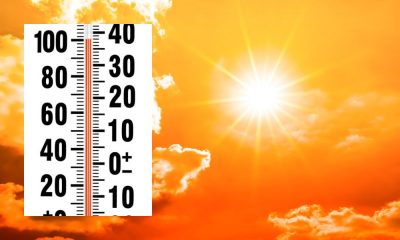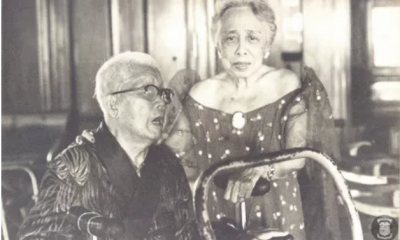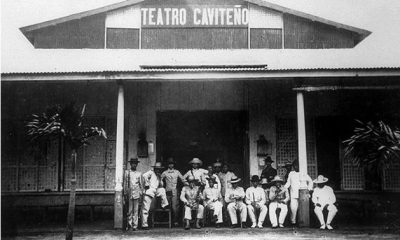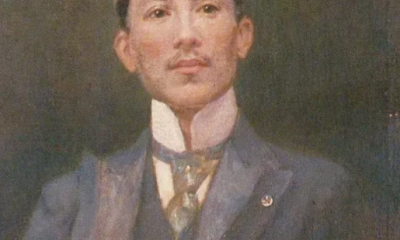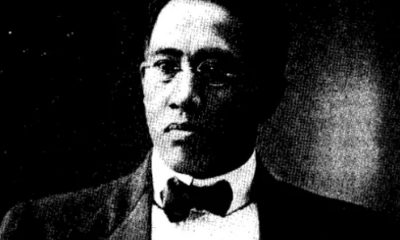History
Today in PH History
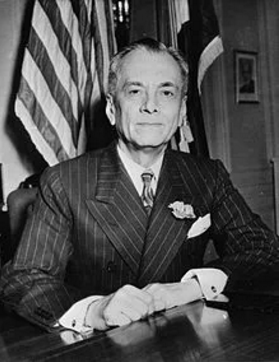

On August 19, 1878, Manuel Luis Quezon was born in Baler, in the district of El Principe, Tayabas province (present day Baler, Aurora), to Spanish parents Lucio Quezon, a soldier in the Spanish army, and Maria Dolores Molina. Quezon served as president of the Commonwealth of the Philippines from 1935 to 1944.
Manuel was sent to school in Manila at the age of 9 and remained there through college, where he studied law.
Although he had supported the Spaniards against Filipino nationalists, in 1899 he joined General Aguinaldo’s guerrilla war against the Americans, and was eventually jailed for six months for allegedly murdering an American prisoner. After being released for lack of evidence, Quezon’s sharp mind and considerable charisma caught the eye of American colonial officials, and his stratospheric political ascent began.
In 1906, after serving as a prosecutor in Mindoro, he was elected governor of Tayabas.
In 1907, he was elected to the first Philippine Assembly (later became the House of Representatives) where he served as majority floor leader and chairman of the committee on appropriations. From 1909–1916, he served as one of the Philippines’ two resident commissioners to the U.S. House of Representatives, lobbying for the passage of the Philippine Autonomy Act or Jones Law.
Quezon returned to Manila in 1916 to be elected into the Philippine Senate and later became Senate President, serving continuously for 19 years until 1935. He headed the first Independent Mission to the U.S. Congress in 1919 securing passage of the Tydings-McDuffie Independence Law in 1934.
In 1922, Quezon became the leader of Nacionalista Party.
In 1935 Quezon won the Philippine’s first national presidential election under the banner of the Nacionalista Party. The losing presidential candidates during the 1935 election were, Emilio Aguinaldo (National Socialist), Gregorio Aglipay (Republican), and Pascual Racuyal (independent).
On his 61st birthday on August 19, 1939, President Quezon issued Executive Order No. 217, prescribing a Filipino code of ethics, consisting of sixteen principles to be taught in all schools of the Philippines.
- Have faith in Divine Providence that guides the destinies of men and nations.
- Love your country for it is the home of your people, the seat of your affections, and the source of your happiness and well-being. Its defense is your primary duty. Be ready at all times to sacrifice and die for it if necessary.
- Respect the Constitution which is the expression of your sovereign will. The government is your government. It has been established for your safety and welfare. Obey the laws and see that they are observed by all and that public officials comply with their duties.
- Pay your taxes willingly and promptly. Citizenship implies not only rights but also obligations.
- Safeguard the purity of suffrage and abide by the decisions of the majority.
- Love and respect your parents. It is your duty to serve them gratefully and well.
- Value your honor as you value your life. Poverty with honor is preferable to wealth with dishonor.
- Be truthful and be honest in thought and in action. Be just and charitable, courteous but dignified in your dealings with your fellow men.
- Lead a clean and frugal life. Do not indulge in frivolity or pretense. Be simple in your dress and modest in your behavior.
- Live up to the noble traditions of our people. Venerate the memory of our heroes. Their lives point the way to duty and honor.
- Be industrious. Be not afraid or ashamed to do manual labor. Productive toil is conducive to economic security and adds to the wealth of the nation.
- Rely on your own efforts for your progress and happiness. Be not easily discouraged. Persevere in the pursuit of your legitimate ambitions.
- Do your work cheerfully, thoroughly, and well. Work badly done is worse than work undone. Do not leave for tomorrow what you can do today.
- Contribute to the welfare of your community and promote social justice. You do not live for yourselves and your families alone. You are a part of society to which you owe definite responsibilities.
- Cultivate the habit of using goods made in the Philippines. Patronize the products and trades of your countrymen.
- Use and develop our natural resources and conservation for posterity. They are the inalienable heritage of our people. Do not traffic with your citizenship.
After the Japanese invasion of the Philippines during World War II he evacuated to Corregidor, then the Visayas and Mindanao, and upon the invitation of the US government, was further evacuated to Australia and then to the United States, where he established the Commonwealth government in exile with headquarters in Washington, D.C..
During his exile in the US, Manuel Luis Quezon died of tuberculosis in Saranac Lake, New York on August 1, 1944.
Source: Kahimyang
References:
- Pambansang Komisyong Pangkasaysayan
- Manuel L. Quezon, People and Events, American Experience, pbs.org



